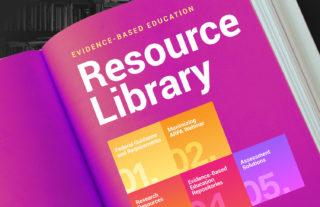Assessment in the Uncertain COVID-19 Era: ESSA Assessment Provisions


As state plans are approved by the United States Department of Education (DoE), a clarity around the importance of assessments is emerging.
Obviously, assessments have played an important role in education since the DoE’s inception. But with each reauthorization of the Elementary and Secondary Education Act, expectations have evolved. Today, the Every Student Succeeds Act (ESSA) has replaced some of the assessment requirements that were most challenging for educators under No Child Left Behind.
Changes in the law allow for more comprehensive systems of assessments, as opposed to a one-size-fits-all summative assessment at the end of the year. Additional types of assessments now permitted for accountability purposes include interim, adaptive, summative, formative, and performance-based assessments. However, use of these new options is not mandatory, and many districts have not taken advantage of these other assessment opportunities.
The truth is that after the challenges of the last year, formative assessments are more critical than ever. Fortunately, ESSA empowers teachers with more ways to gather real-time data on where students are – academically and socio-emotionally.
Quickly identifying and addressing learning gaps requires more than standardized end-of-year assessments. State leaders now have the ability to work with technology partners that support district efforts to expand assessment opportunities, reduce educator workloads, and increase actionable feedback. Because, ultimately, data informs instruction.
Now is the time to leverage flexibility, congressional funding, and leadership from the Department of Education to create real change. Reach out to learn more about how GradeCam Gradient can help your state, educators, and students expand the power and possibilities of assessments.




